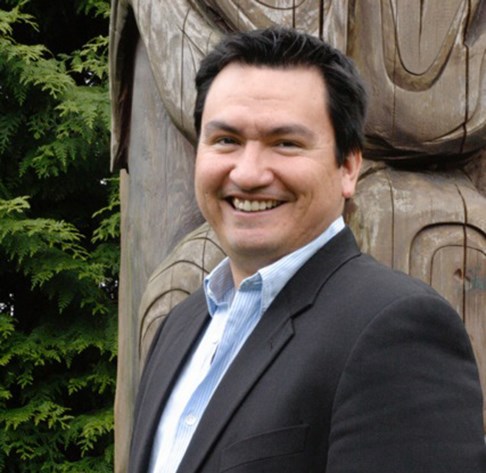Recently The Squamish Chief sat down with Squamish Nation hereditary Chief Ian Campbell over coffee for a brief chat about what motivates him, the liquefied natural gas proposal and how government and First Nations can negotiate. What follows is an abridged and edited version of that conversation.
Q: You said a youth exchange trip to Chile after high school changed your life. How so?
A: We went down at a time, shortly after Augusto Pinochet’s dictatorship, so to see the level of oppression of the aboriginal peoples down there was quite stark. There was still a heavy military presence; the [aboriginal] culture was very much prohibited. The people had gone through a lot of atrocities and trauma. So, to reflect on the experience here in Canada of cultural genocide and legislative oppression that intentionally tried to assimilate First Nations people, it was a different tactic than what we saw in Chile, but it opened my eyes to the various tactics to oppress First Nations. Which really opened my eyes to wanting to get involved in the political realm.
Q: With the history of First Nations and government in this country that you refer to, how do you have any level of trust when you sit down to negotiate?
A: My grandma has a good saying. She says, “I remain a cockeyed optimist.” One thing that informs me is our mythology. It talks about many chapters of change and transformation.
You can throw a dart at a map and find a group that has been fighting and been oppressed over dirt and toys. Many people have become majorly affluent here at the expense of indigenous peoples who continue to manage poverty. So we are going, ‘This is a great country, but let’s start growing and maturing as a society to really accept that this country is founded on indigenous peoples and that we can’t continue to perpetuate the story that it is a free and vacant land, free for the taking.”
Q: Where is the Squamish Nation at with its assessment of the proposed Woodfibre LNG facility and FortisBC pipeline here in Squamish?
A: We’ve completed phase one, which is interaction with our community members to give them the opportunity to respond, so now we are correlating all that information, which is volumes of great questions, very astute concerns.
So now we are going through phase two, which is looking at the technical analysis and leading towards what are the risks, what are the benefits and how do we package these findings to present to chiefs and council later this spring. And then they will have a difficult decision to make as to, are the risks greater than the benefits and how do we balance that and how do we communicate this to both the province and the proponent to either try to mitigate these – or is it in our analysis there is just nothing we can do to support this because of the risks?
Q: As you know, some Squamish Nation members have been quite vocal in their opposition to the proposed Woodfibre LNG and FortisBC pipeline, and there will be a protest here at Nexen beach in a week. What is your comment on that opposition?
A: Many of our members have been very active from the onset of the LNG proposal. It has already brought the issue to light so that many people are aware of it, they want to learn more about it, they want a say in it. I welcome that kind of engagement.
And, there are varying opinions, just like any community. We have some that are for it because of economic benefits, and there are some that are against it for other reasons such as environment, and some that are just really not sure yet. We are trying to consider all interests in order to make our decisions.
Q: Last month two Squamish Nation councillors – Krisandra Jacobs and Glen Newman – were removed from Squamish Nation Council. Will they be replaced?
A: Neither now work for the Nation. No decision has yet been made to fill the two vacant positions.




